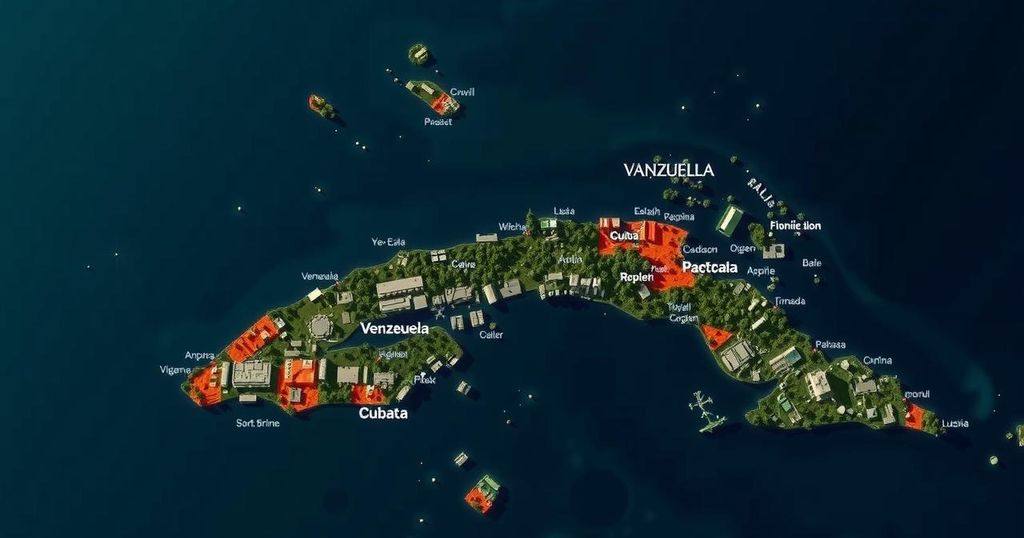Alexei Zhuravlev proposes the installation of Russian missiles in Cuba and Venezuela as a response to Western aid to Ukraine, likening it to Cold War tensions. This follows escalating military exchanges between Russia and these nations, where missile capabilities may directly threaten the United States.
In recent comments, Alexei Zhuravlev, the first vice president of the Russian Defense Committee, has once again proposed the stationing of Russian missiles in Cuba and Venezuela as a tactical response to the support provided by Western nations to Ukraine. Zhuravlev contends that such a move would serve to directly threaten the United States, reminiscent of Cold War-era tensions exemplified during the 1962 October Crisis. He emphasizes that military actions to reinforce Russian positions are imperative as the conflict in Ukraine progresses, stating that it is vital to warn Ukraine’s allies of the consequences of their actions.
This discussion emerges against the backdrop of ongoing military conflicts involving Ukraine, where Western support has intensified, leading to a significant response from Russia. The proposal to install missiles is not merely a spontaneous notion; it reflects Russia’s strategic recalibration in response to perceived threats. Historically, Cuba has been considered a significant strategic ally for Russia, providing a geographical advantage that could alter the balance of military power in the Western Hemisphere.
In summary, the recent suggestions by Russian lawmakers to deploy missiles in Cuba and Venezuela signify a stark escalation in the geopolitical tensions between Russia and the West. As Moscow seeks to augment its military capabilities in response to Western support for Ukraine, the potential establishment of missile bases in these nations could serve as a provocative measure against the United States, drawing parallels to historical confrontations during the Cold War.
Original Source: havanatimes.org






